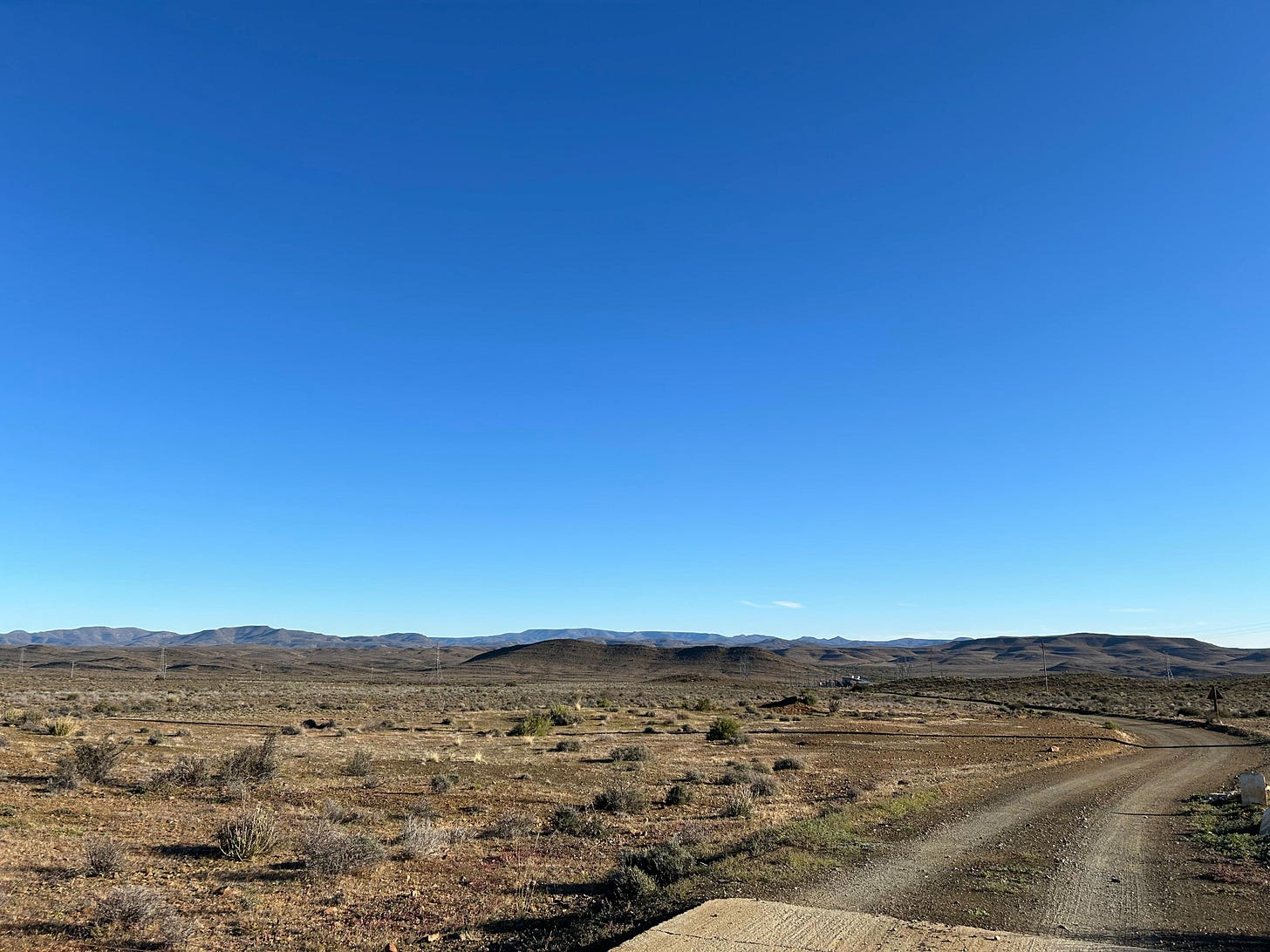Notes from my conversation with South Africa's Minister of Land Reform and Rural Development
Land reform must balance two aspects: (1) restorative justice and (2) economic growth
Like many South Africans, I spent time this past week clarifying a few aspects of land reform and agriculture in our country following some misinformation about the sector in the White House.
The land discussion in South Africa is generally polarising and has been that way for some time. However, the claims that property rights are being undermined are incorrect.
Thus, I was comforted when a couple of political leaders came out affirming and clarifying that, as a country, we are committed to maintaining strong property rights as the land reform process continues fairly and transparently.
One of the gentlemen some were looking to get a word of comfort from is Mr Mzwanele Nyhontso, South Africa's Minister of Land Reform and Rural Development. I called him last night, as we typically exchange views about rural development and land matters in our country. He was as troubled about the misinformation about land rights in South Africa as many of us.
And yes, I will admit, like many South African politicians who have talked about land reform, Minister Nyhontso has passionately expressed commitment to land reform that may have pushed the envelope about the possibilities of recent legislation a little farther than realistic.
But he insisted on the rule of law and reaffirmed what we all know: South Africa has no land expropriation.
Significantly, this country's land reform policy has not changed. The new or updated Expropriation Act is not necessarily a land reform approach and is administered by the Public Works Department, not the Department of Land Reform and Rural Development.
In a formal media statement released on May 22, Minister Nyhontso stated that:
"All land acquired for land restitution and redistribution purposes by the government is purchased through a fair, transparent, and legal process. Land purchase from previous owners, particularly white owners, is based on negotiated agreements. This approach is aligned with protecting property rights and promoting inclusive development and improved access to land."
The statement further stated that:
"The government remains committed to a land reform process that is constitutional, economically viable and socially responsible."
This again shows that the land reform process in South Africa remains based on market-based principles and that the land policy has not changed. Indeed, there will continue to be heated discussions about the progress of land reform in South Africa and various ideas that people may pitch.
However, the important thing is that such conversations must happen fairly and transparently, respecting the rule of law and protecting property rights.
It is also essential to underscore that the South African government has acquired over two million hectares through the market over time, which is now in the State's books. This land should be distributed, with title deeds, to black farmers, mainly to promote commercially viable agricultural activities.
Therefore, instead of only clarifying that there is no widescale land expropriation in South Africa, we must also focus on the government's role and what it could do to ease the land pressures and ensure the better participation of black farmers in commercial agriculture.
The first step is through Minister Nyhontsho's department moving quickly to release the land to black farmers and partner with commodity associations and financial institutions to ensure the appropriate selection of beneficiaries and that there is necessary support for them to make the agricultural initiatives.
Overall, misinformation about the realities of agriculture and land dynamics in South Africa could harm investment and agricultural export activities. Indeed, when unfair activities occur, they must be raised, and the political leadership should always help in such matters. Equally, the government must ensure that the land acquired thus far is released to beneficiaries and that they have appropriate support to make land reform successful.
We must never forget that land reform must balance two aspects: (1) restorative justice and (2) economic growth; thus, it is essential not to hoard land but to release it with title deeds and speed.
Our latest book, The Uncomfortable Truth About South Africa's Agriculture (co-authored with Professor Johann Kirsten), discusses some practical implementation steps.




I believe a well-structured and staffed body to direct and fund land development - rural and agricultural settlement - is crucial and now required for farmer support and development focused programmes, incubation, funding, infrastructure, etc. etc--We have some good workable models developed over time .... since the DBSA days and recently PALS and other models. Such a "development institution" must also be independent- a real partnership between government and private sector agribusinesses and must be funded well. Gvt alone just cannot do that job efficiently and effective and fiascos such as Daybreak must be avoided. Now that will build confidence and trust and change the many negative perceptions about current initiatives.